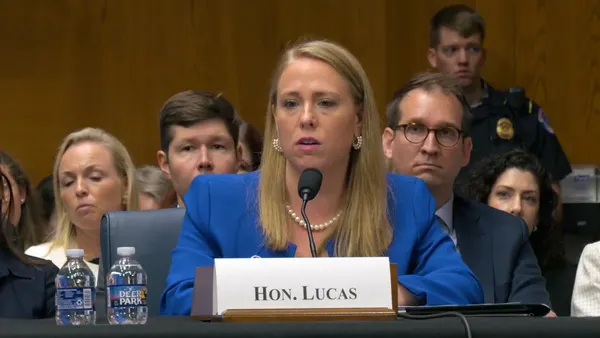Dive Brief:
- A job applicant sued Paycom last week, alleging the background check provider incorrectly reported his twin brother’s charges to a prospective employer.
- A manufacturing company offered a job to the plaintiff, Rodney, earlier this year. It conducted a background check through Paycom before his start date and the provider allegedly furnished a report including misdemeanor and felony charges belonging to his twin brother, an individual named “Rod” with the same birthdate.
- The employer rescinded the conditional offer and declined to employ the plaintiff even after the report was corrected, he alleged in the complaint filed in an Indiana federal court. Paycom did not respond to a request for comment by press time.
Dive Insight:
According to a study published last year by a pair of criminal justice professors, private-sector background checks are laden with both false-positive and false-negative errors.
Those errors are driven, in part, by techniques that rely on names and birthdates rather than unique identifiers like fingerprints, one of the researchers said at the time.
Federal law requires that providers maintain procedures to assure maximum possible accuracy in their reporting. In last week’s lawsuit, however, the plaintiff alleged Paycom could have done more to prevent the alleged error; workers have filed lawsuits alleging similar claims against other providers, including ADP, Sterling Infosystems and TransUnion.
Just days before the Paycom lawsuit was filed, the provider announced it had received an accreditation from the Professional Background Screening Association, a standard that requires it to pass a third-party audit that includes a review of its policies and procedures. “This achievement demonstrates we adhere to the industry’s most stringent standards,” said Matt Paque, chief legal officer at Paycom, at the time.
A variety of stakeholders have noted that while applicant background checks may be crucial for certain jobs, their use also may have downsides: Using such checks early in the hiring process or more often than necessary could limit talent pools; hamper diversity and inclusion efforts; and give rise to disparate treatment claims, some have warned. Moreover, some state and local “ban-the-box” laws dictate how employers may use background checks, although research is mixed on those laws’ effectiveness.















